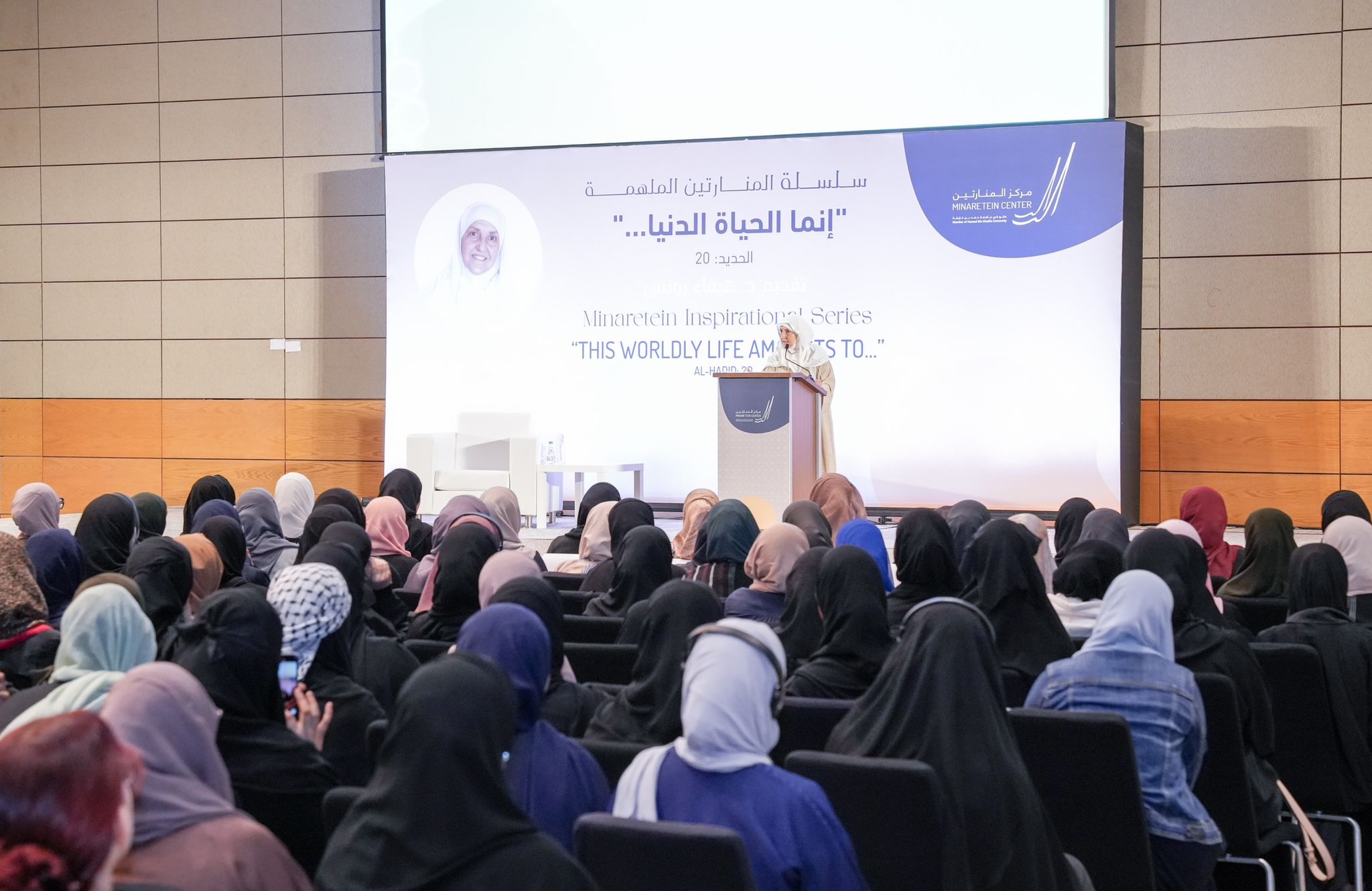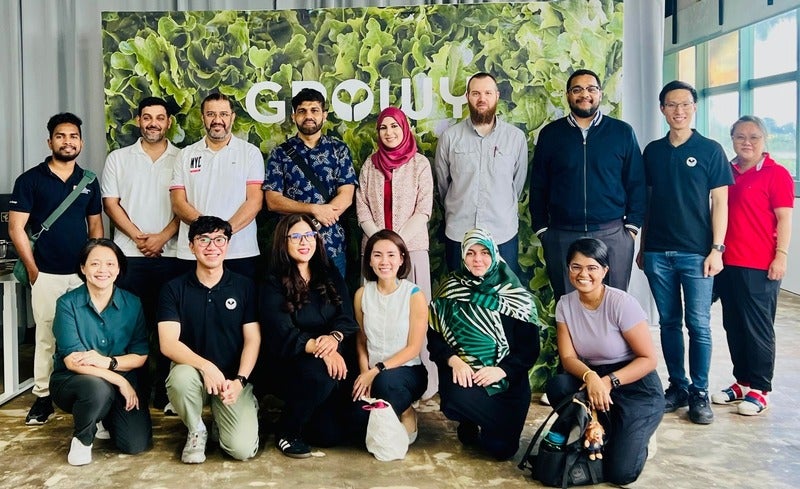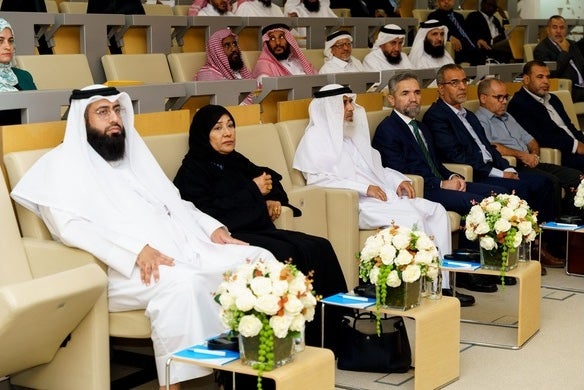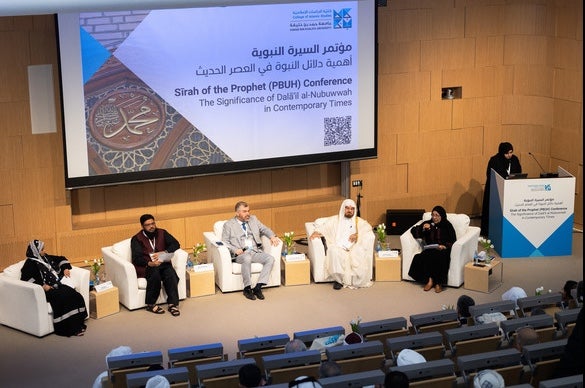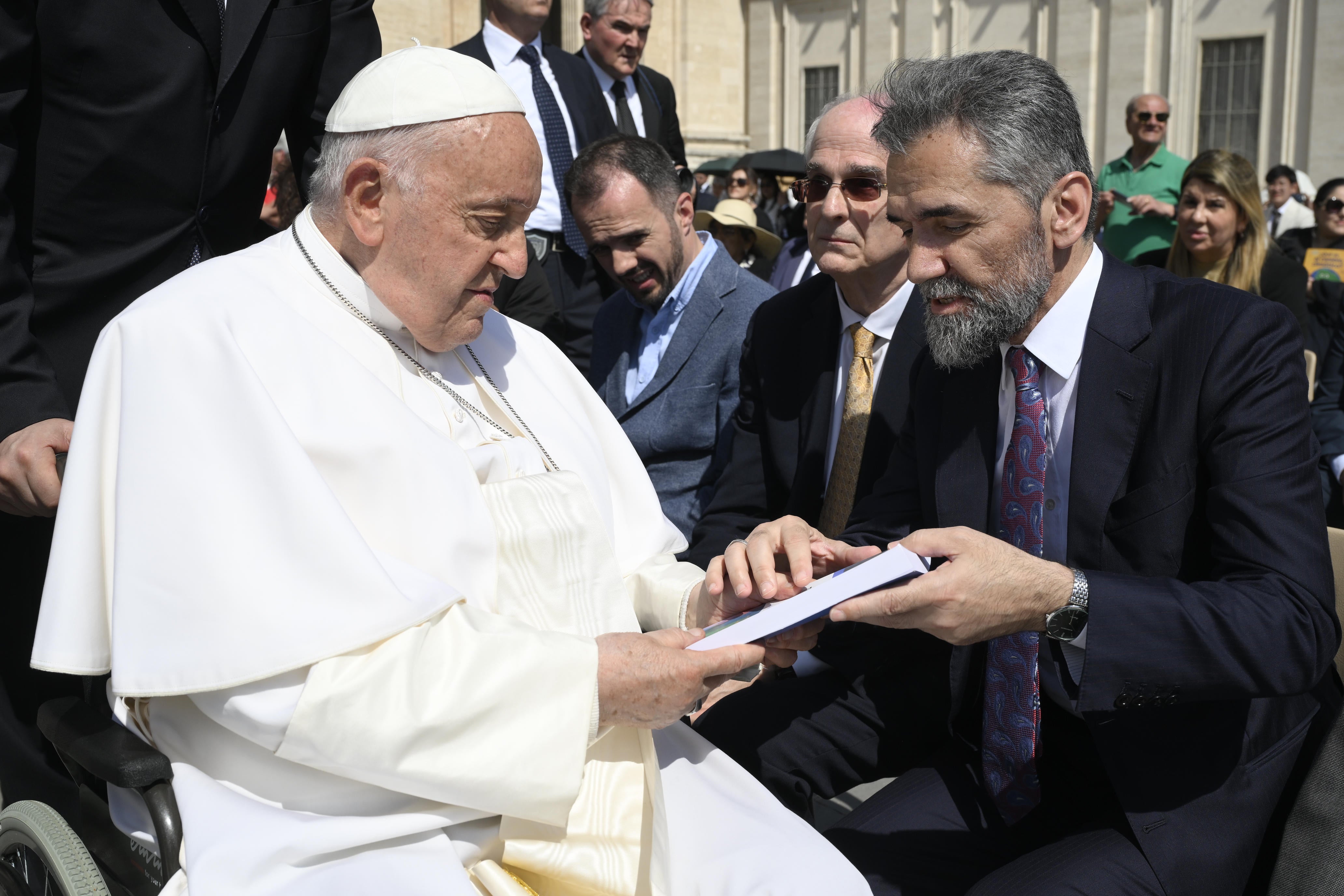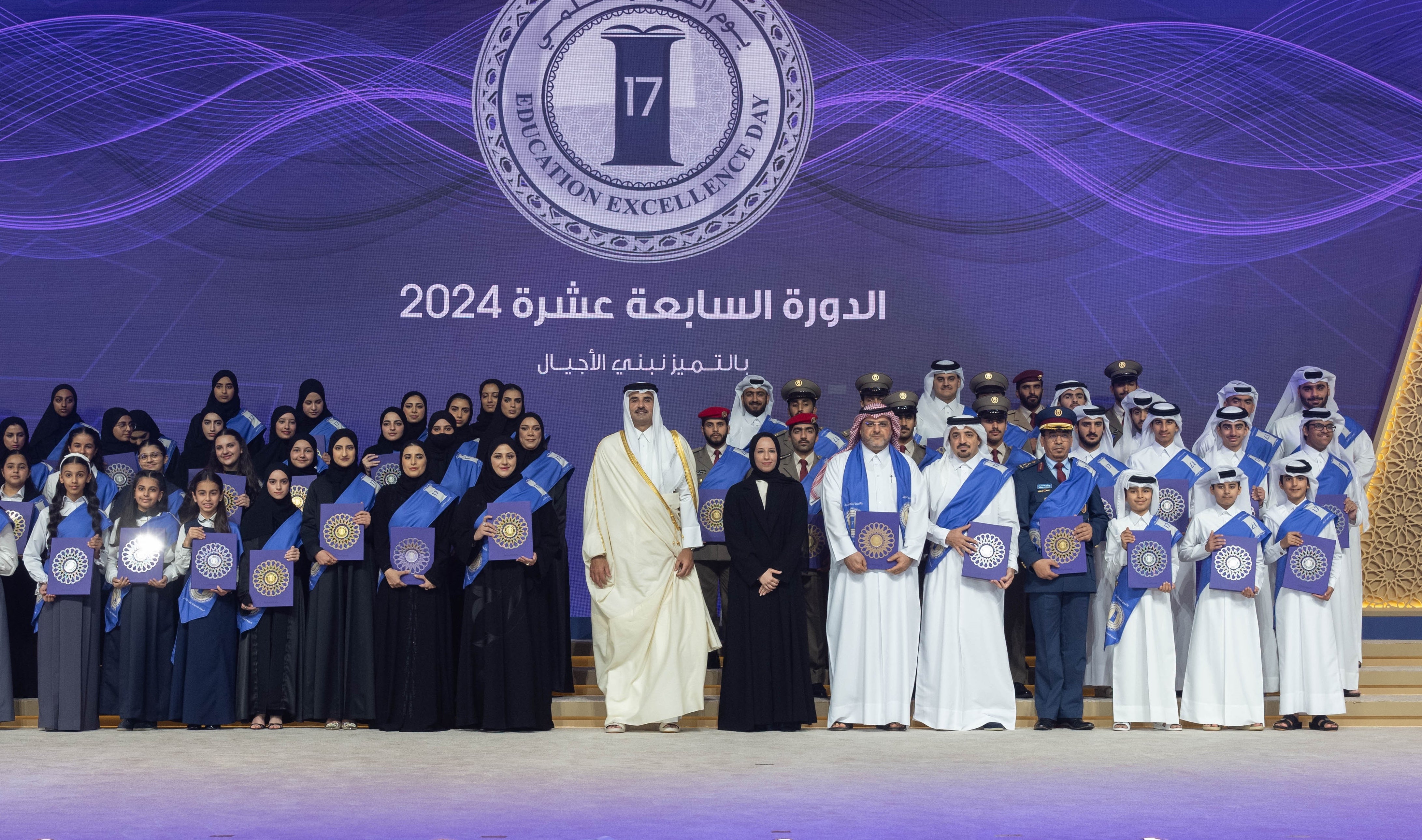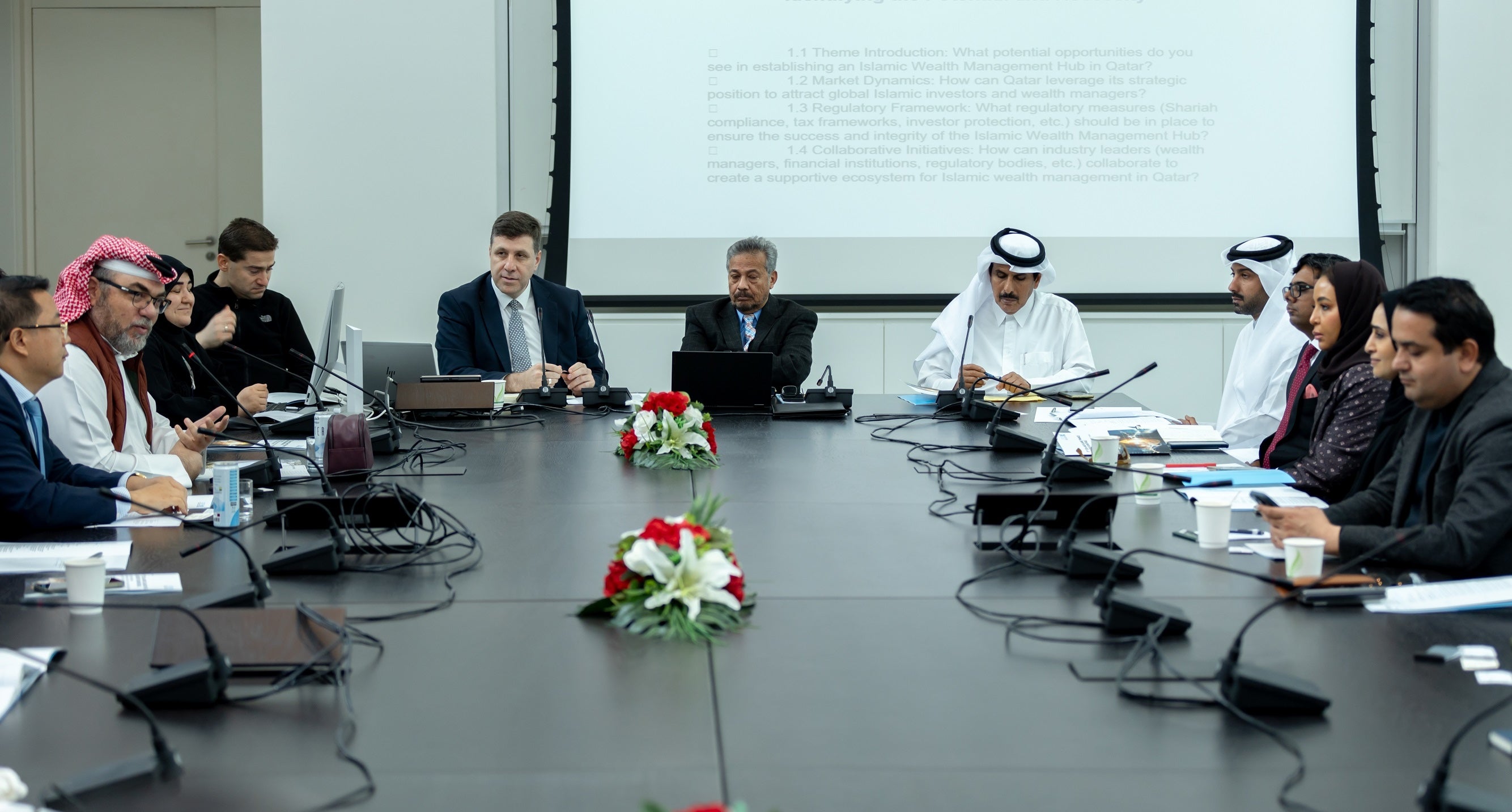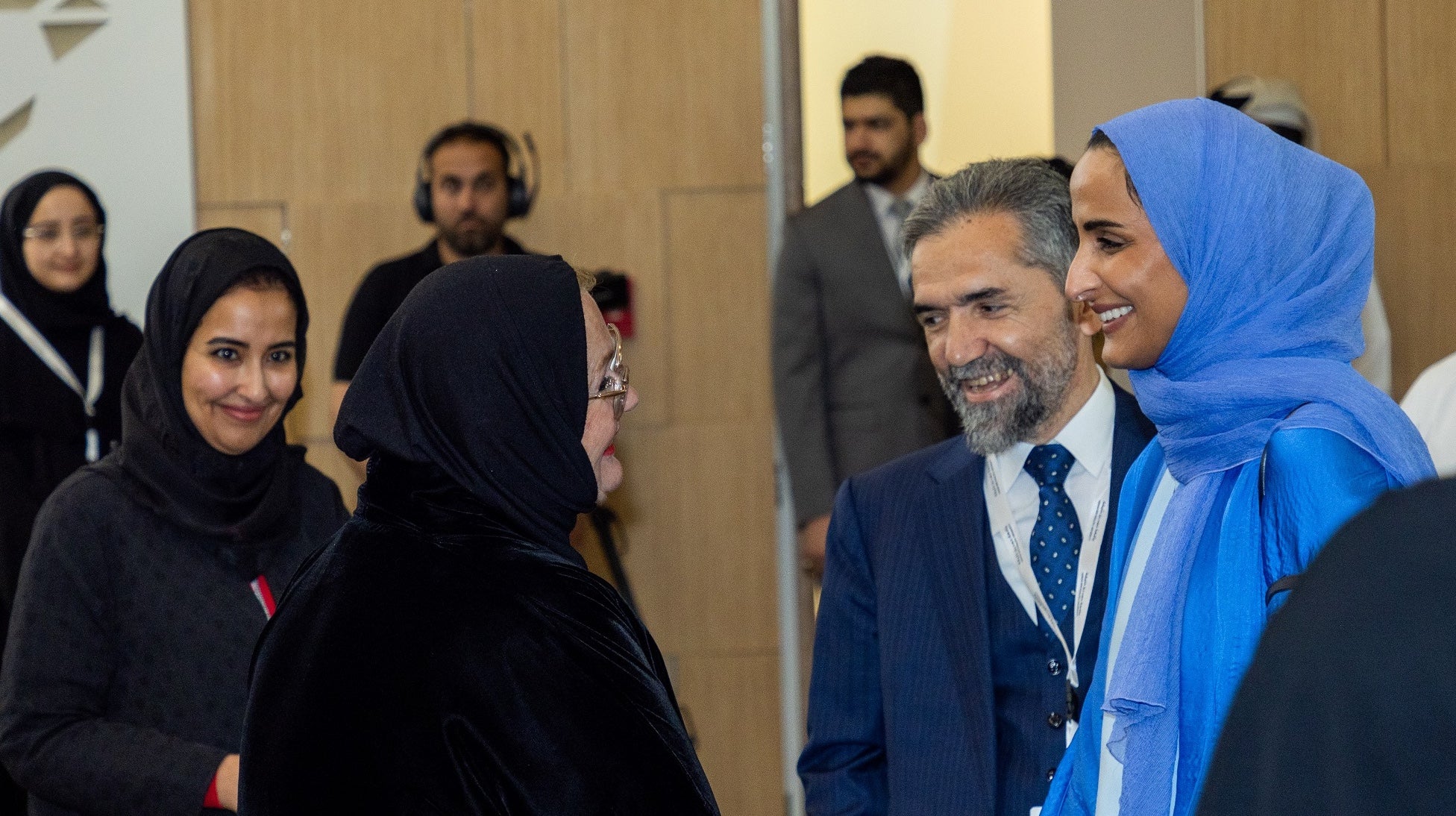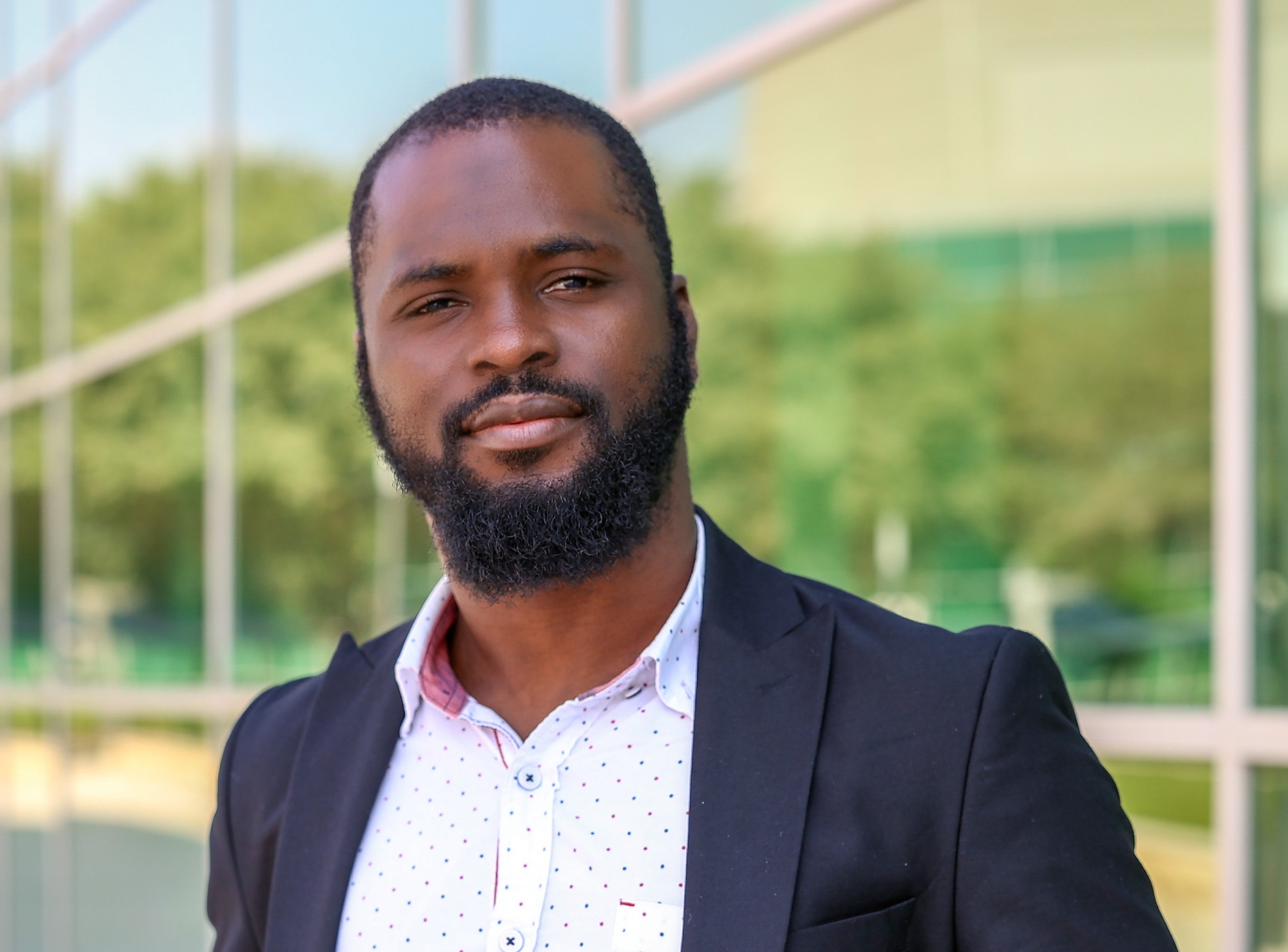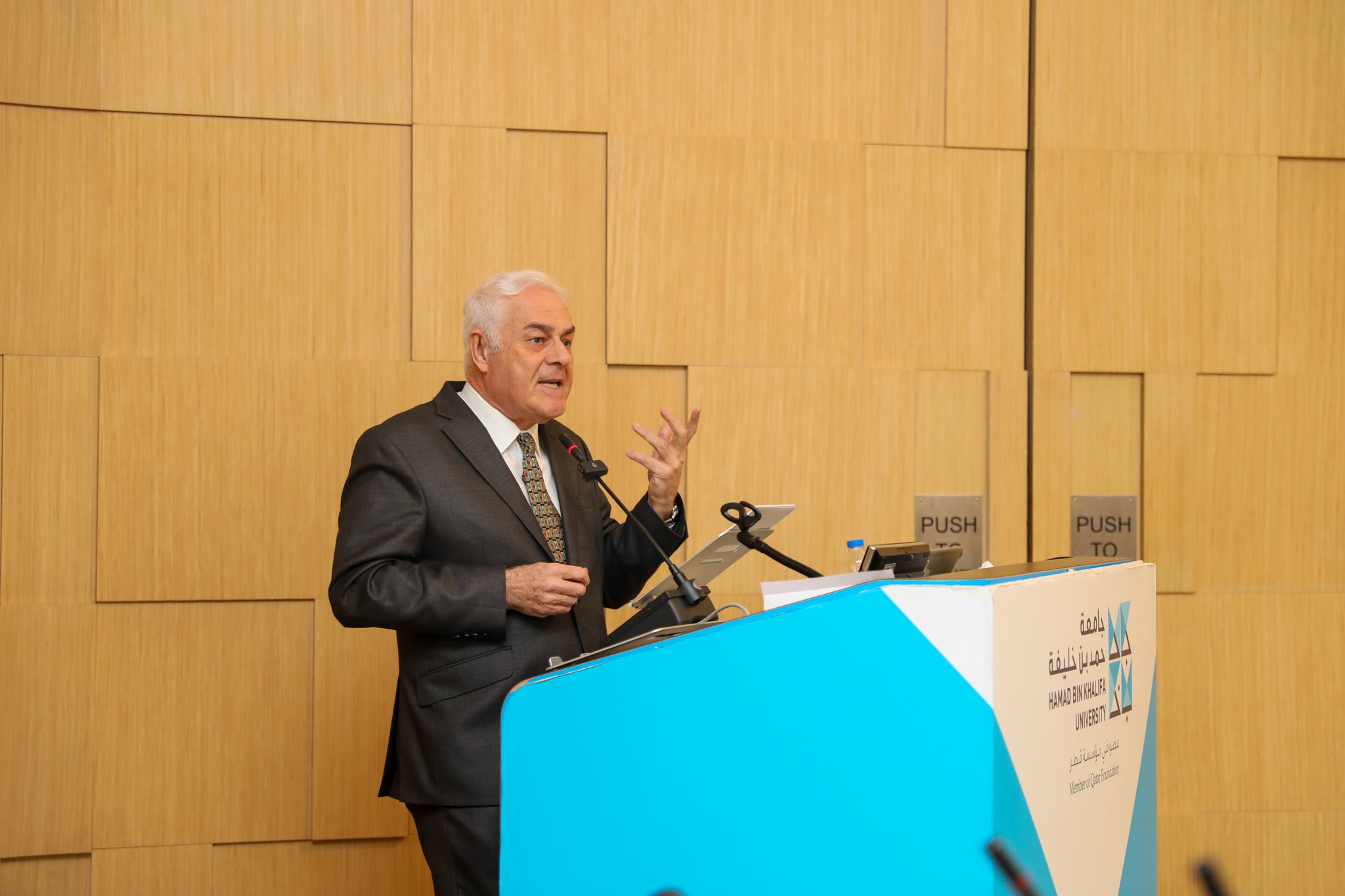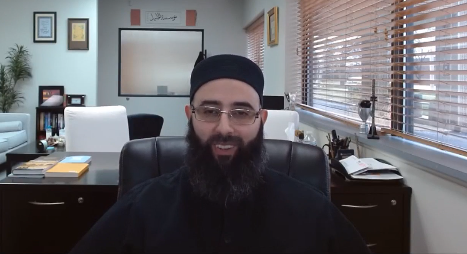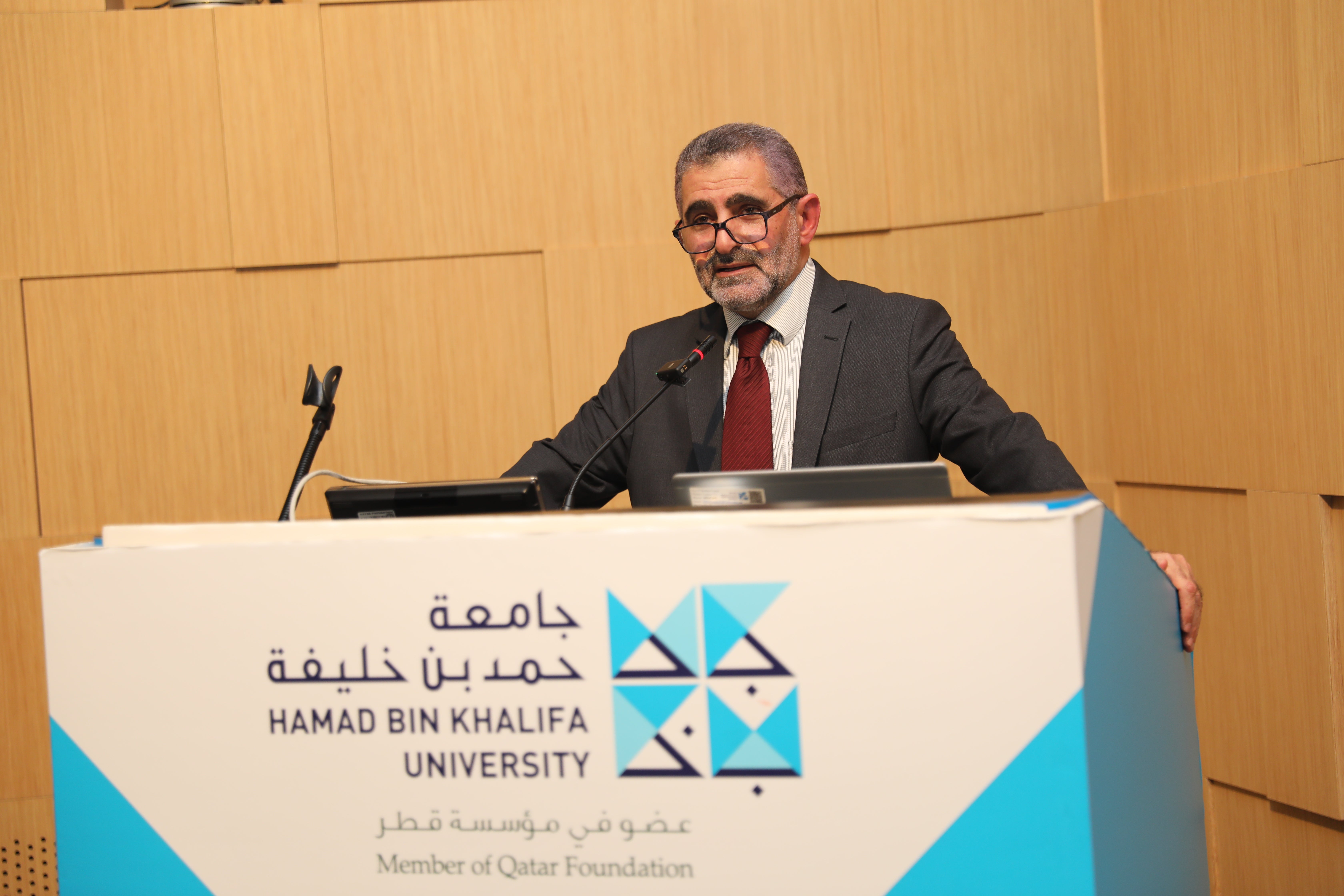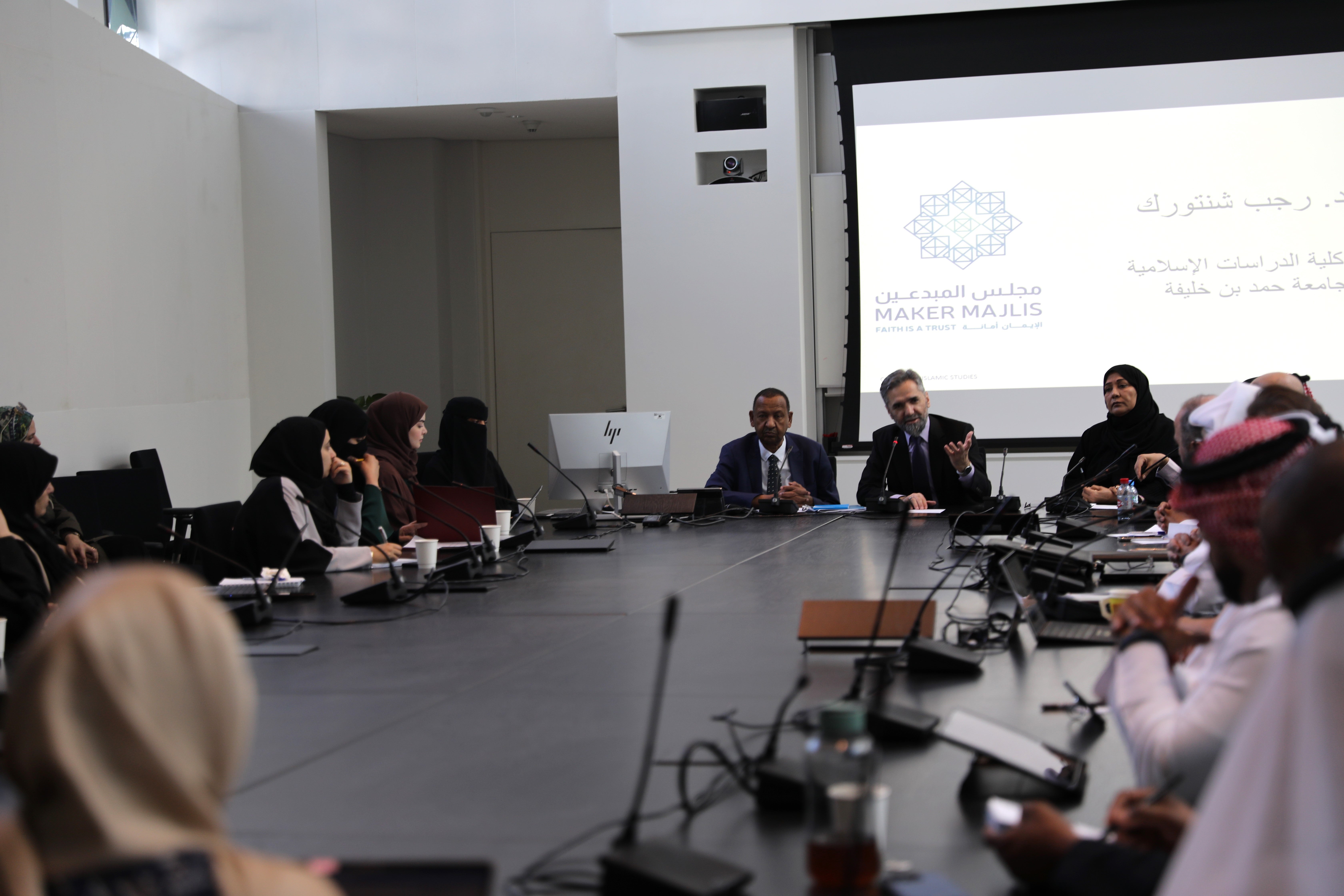
CIS Hosts Lecture on Commentary on Ibn Hisham’s Sira
Discussion highlighted Abul Qasim al-Suhayli’s methodology of writing Al-Rawd al-Unuf (The Fragrant Garden)
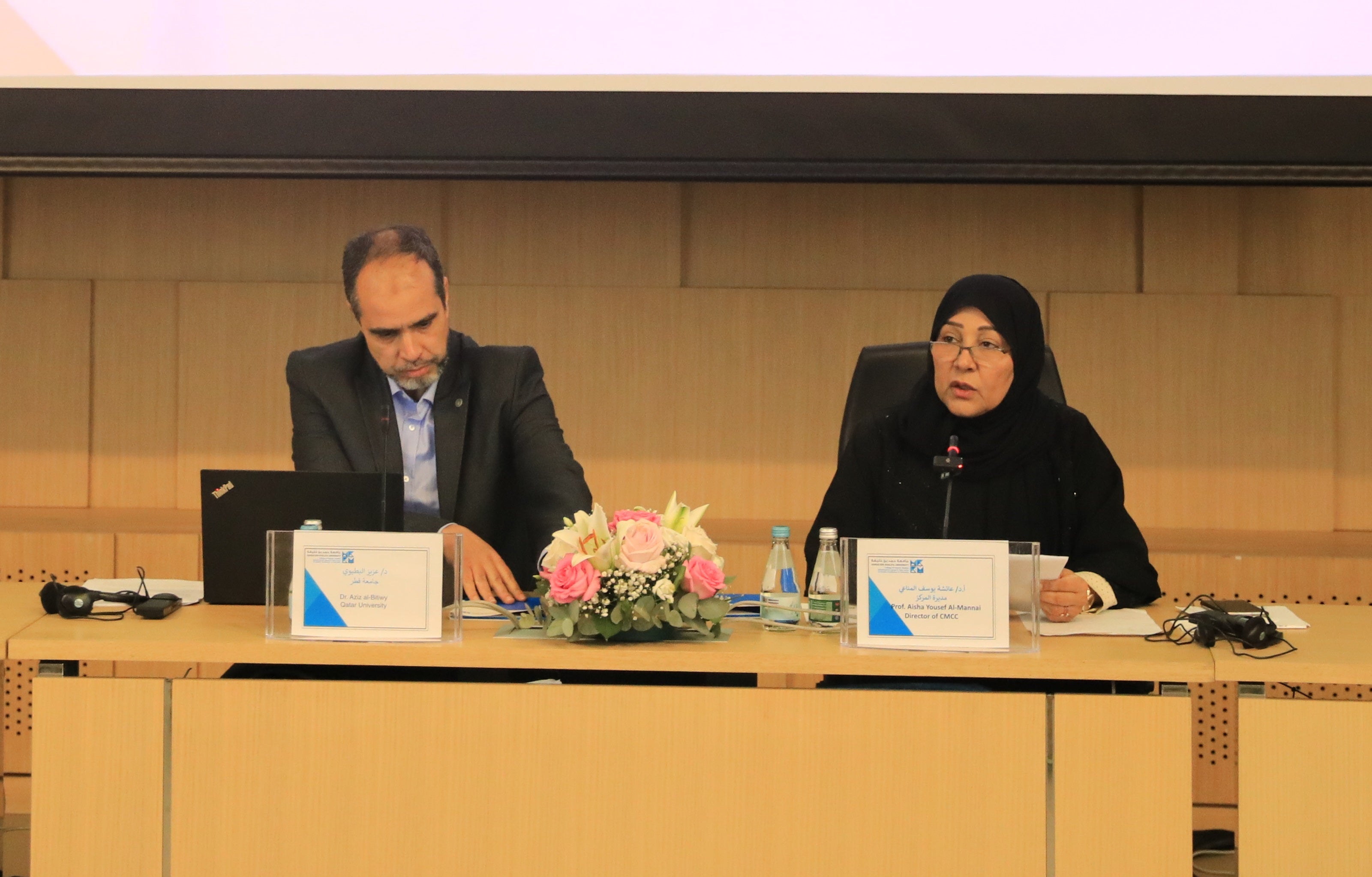
The Muhammad Bin Hamad Al Thani Center for Muslim Contribution to Civilization at Hamad Bin Khalifa University’s (HBKU) College of Islamic Studies (CIS) hosted a special lecture discussing what is widely considered the most renowned commentary on Ibn Hisham’s Sirah of the Prophet Muhammad (PBUH).
Al-Rawd al-Unuf (The Fragrant Garden), authored by Abul Qasim al-Suhayli in the 13th century, features a comprehensive portrayal of the life and character of the Prophet. It is based on Al-Sīrah al-Nabawiyyah (The Life of the Prophet), Ibn Hisham’s 9th century edited recension of Ibn Ishaq's 8th century biography of the Prophet Muhammad (PBUH) Sīratu Rasūli l-Lāh (The Life of God's Messenger).
Al-Suhayli goes beyond a simple biographical account and delves deep into the various aspects of the Prophet Muhammad’s (PBUH) life, including his family, companions, and teachings.
Prof. Aisha Yousef al-Mannai, Director, Muhammad Bin Hamad Al Thani Center for Muslim Contribution to Civilization, HBKU’s College of Islamic Studies, and Dr. Aziz al-Bitiwy, Associate Professor in the Department of Aqidah and Da’wah, College of Shariah and Islamic Studies, Qatar University, gave the lecture together. They both delved into the methodology al-Suhayli employed when writing Al-Rawd al-Unuf (The Fragrant Garden) and explored how he constructed this seminal work.
“Al-Rawd al-Unuf (The Fragrant Garden) continues to possess revealing insights into the Prophet Muhammad’s (PBUH) life, as well as the historical and cultural context surrounding it. At CIS, we provide a uniquely composed platform that contributes to the intellectual debate and constructive dialogue on Islam in a global context and actively leverages local and international collaborations with distinguished partners to facilitate expertise and build capacity in Qatar and beyond,” said Prof. al-Mannai.
One of the longest established colleges at HBKU, CIS was established as a home for contemporary Islamic studies that connects academic Islamic grounding with modern social sciences in its curricula, teaching platforms, research endeavors, as well as institutional values. The College’s research output is rooted in carefully designed research clusters that together promote interdisciplinary research agendas and inject new contributions to the world of global Islamic scholarship.
Related News
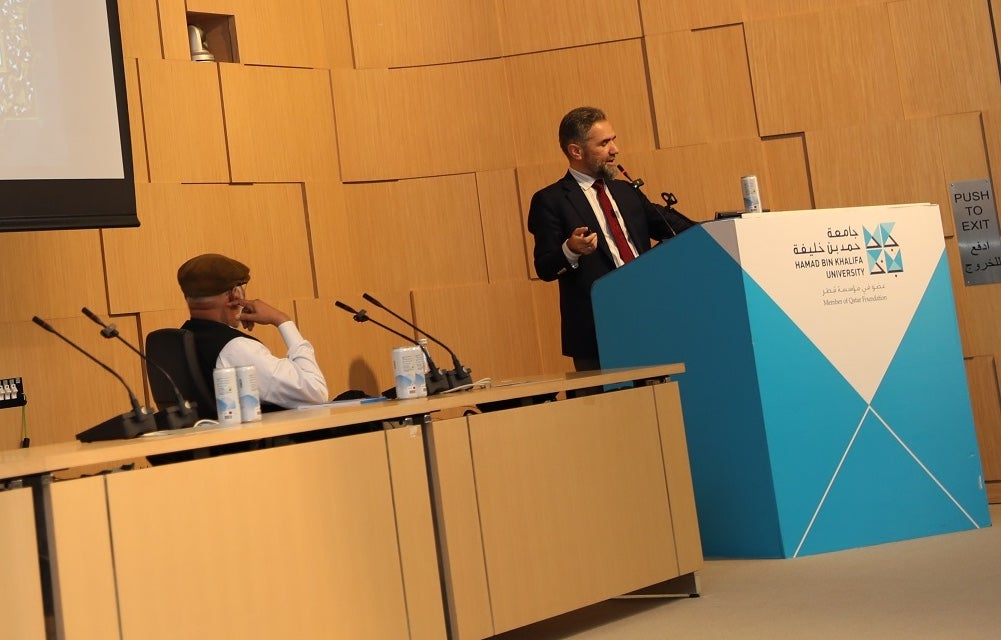
HBKU’s CIS Holds Lecture on the Sirah of the Prophet Muhammad’s (PBUH) Significance
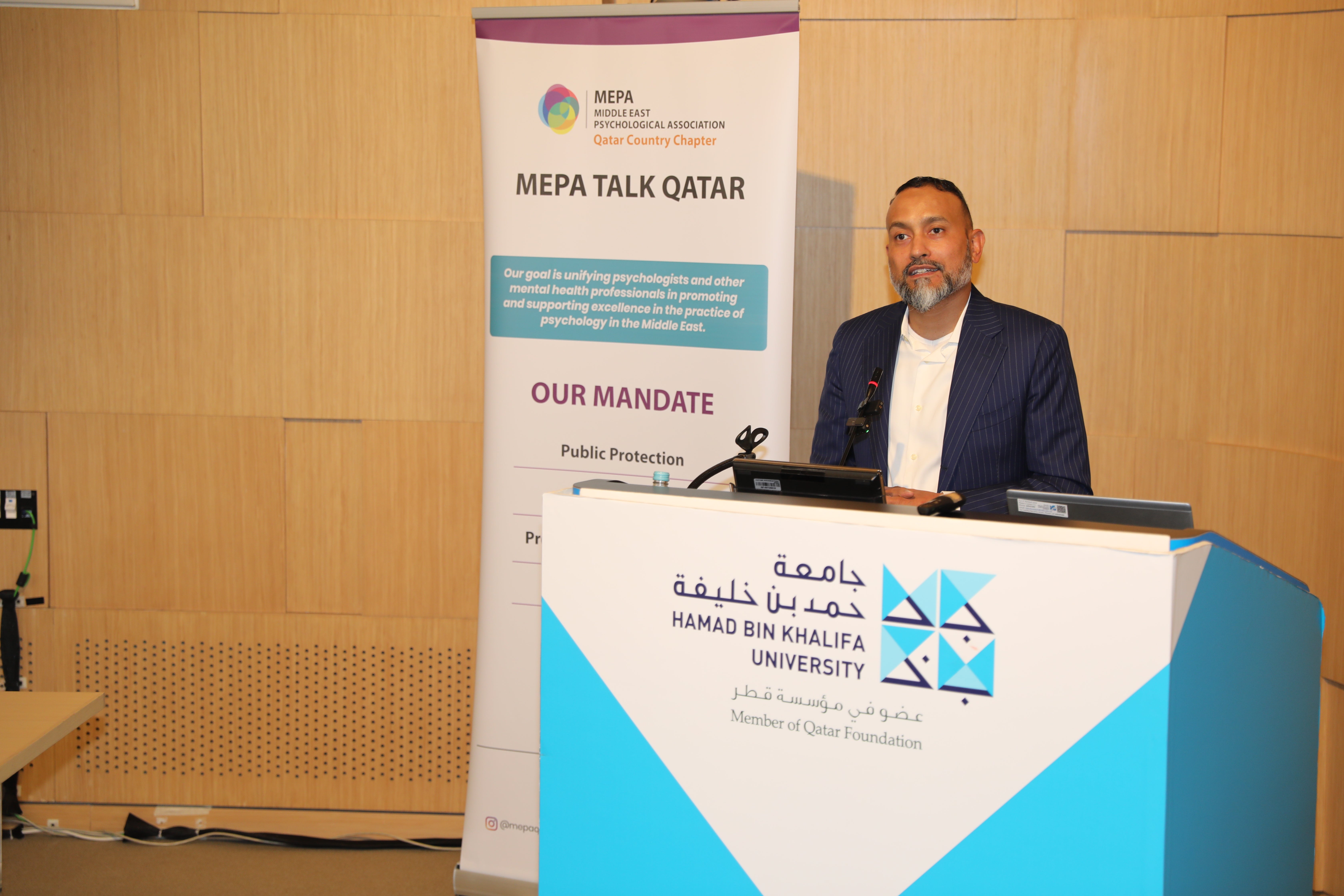
HBKU’s College of Islamic Studies Lecture Highlights Coping Strategies for Gaza Crisis
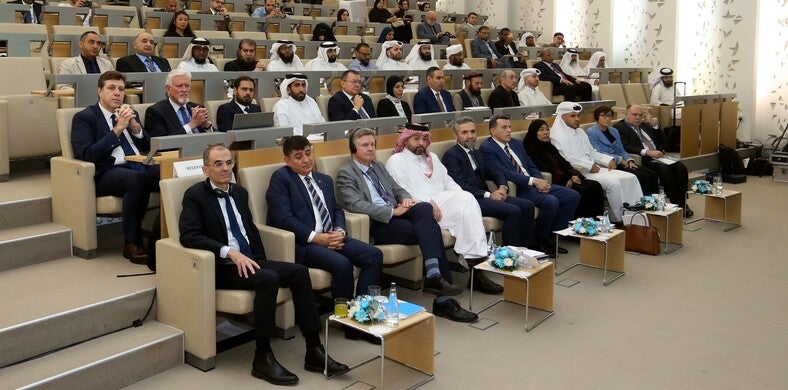
HBKU’s CIS, QFC, and QRDI Council Host 7th International Conference on Islamic Finance
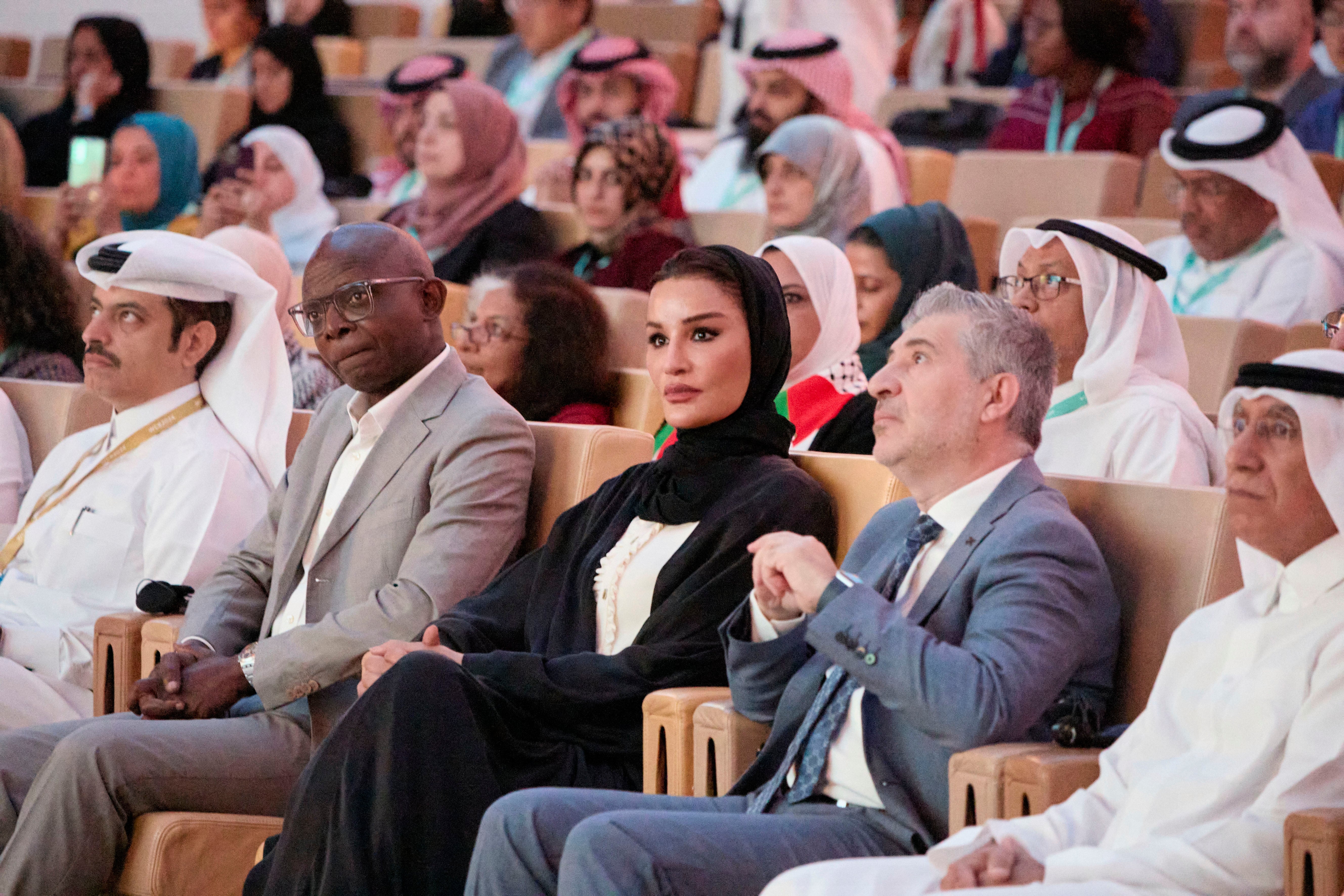
HH Sheikha Moza bint Nasser Witnesses HBKU and WISH Inaugurate First World Congress of Bioethics Held in the Middle East
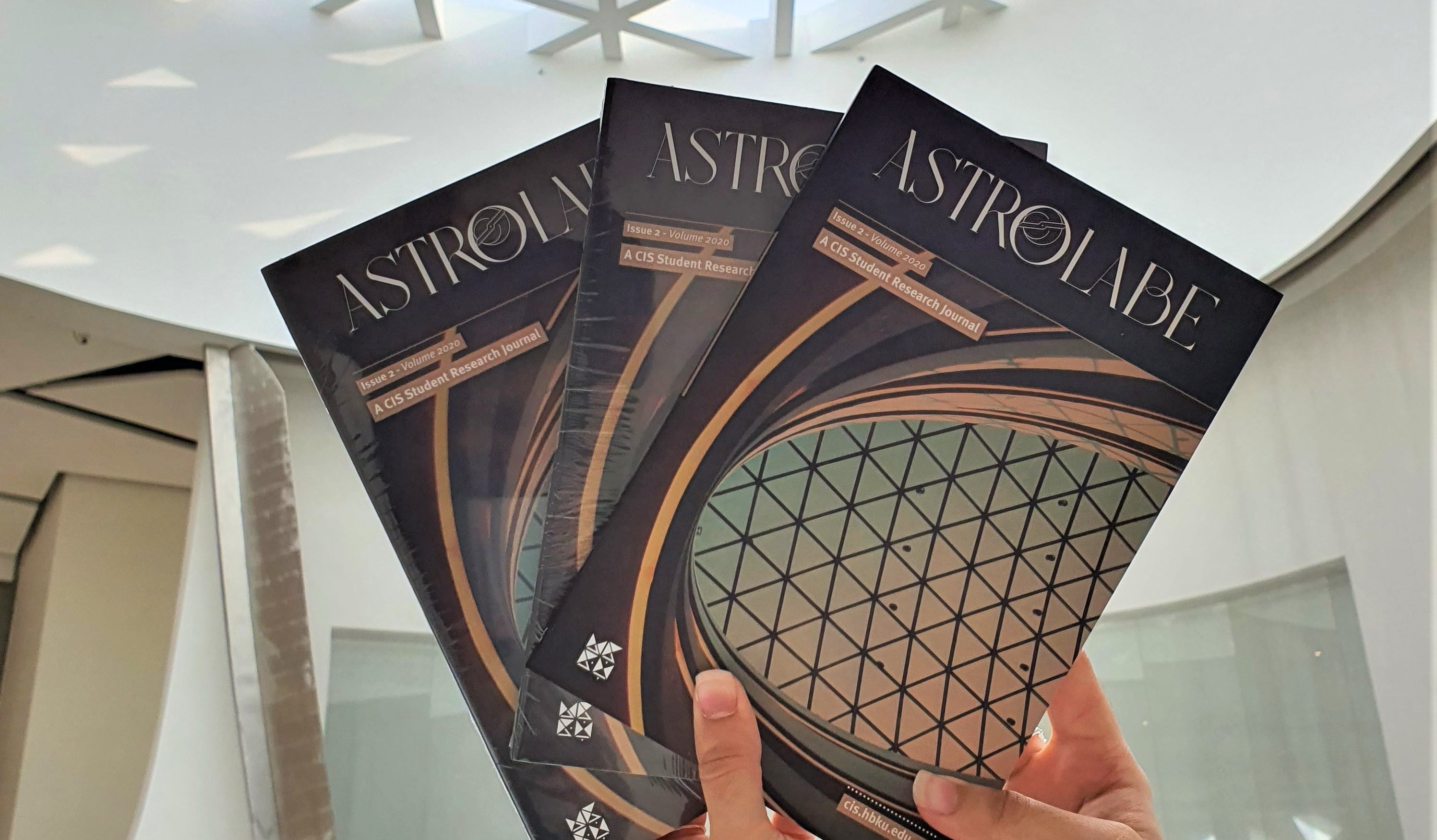
Fifth Edition of Astrolabe: A CIS Student Research Journal Explores Contemporary Issues in Islam
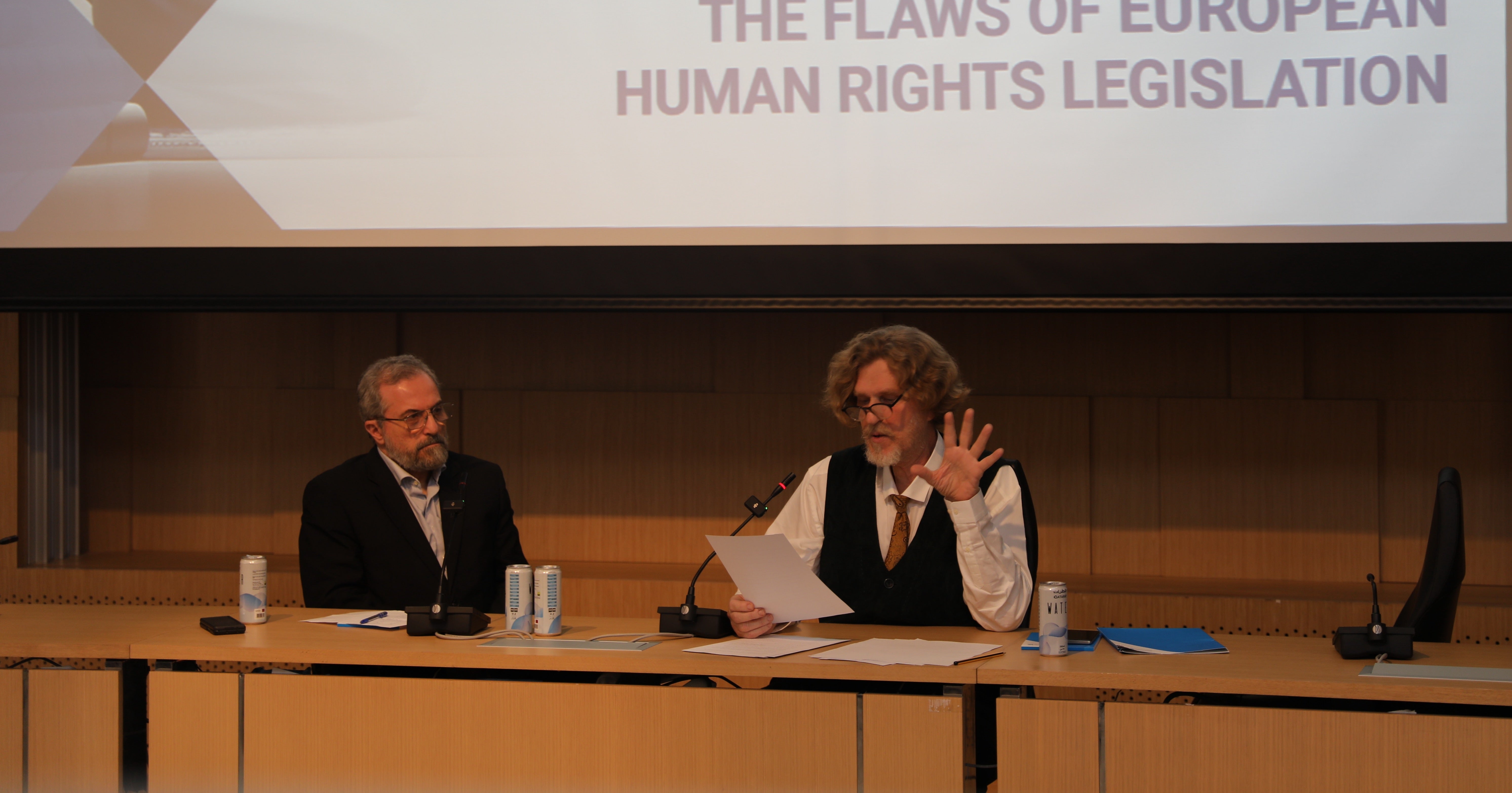
HBKU’s CIS Organizes Lecture Exploring Right to Belief Under European Human Rights Legislation

HBKU’s CIS Holds Lecture on the Sirah of the Prophet Muhammad’s (PBUH) Significance

HBKU’s College of Islamic Studies Lecture Highlights Coping Strategies for Gaza Crisis

HBKU’s CIS, QFC, and QRDI Council Host 7th International Conference on Islamic Finance

HH Sheikha Moza bint Nasser Witnesses HBKU and WISH Inaugurate First World Congress of Bioethics Held in the Middle East

Fifth Edition of Astrolabe: A CIS Student Research Journal Explores Contemporary Issues in Islam

HBKU’s CIS Organizes Lecture Exploring Right to Belief Under European Human Rights Legislation

HBKU’s CIS Holds Lecture on the Sirah of the Prophet Muhammad’s (PBUH) Significance

HBKU’s College of Islamic Studies Lecture Highlights Coping Strategies for Gaza Crisis

HBKU’s CIS, QFC, and QRDI Council Host 7th International Conference on Islamic Finance

HH Sheikha Moza bint Nasser Witnesses HBKU and WISH Inaugurate First World Congress of Bioethics Held in the Middle East

Fifth Edition of Astrolabe: A CIS Student Research Journal Explores Contemporary Issues in Islam

HBKU’s CIS Organizes Lecture Exploring Right to Belief Under European Human Rights Legislation

HBKU’s CIS Holds Lecture on the Sirah of the Prophet Muhammad’s (PBUH) Significance

HBKU’s College of Islamic Studies Lecture Highlights Coping Strategies for Gaza Crisis

HBKU’s CIS, QFC, and QRDI Council Host 7th International Conference on Islamic Finance

HH Sheikha Moza bint Nasser Witnesses HBKU and WISH Inaugurate First World Congress of Bioethics Held in the Middle East

Fifth Edition of Astrolabe: A CIS Student Research Journal Explores Contemporary Issues in Islam

HBKU’s CIS Organizes Lecture Exploring Right to Belief Under European Human Rights Legislation

HBKU’s CIS Holds Lecture on the Sirah of the Prophet Muhammad’s (PBUH) Significance

HBKU’s College of Islamic Studies Lecture Highlights Coping Strategies for Gaza Crisis

HBKU’s CIS, QFC, and QRDI Council Host 7th International Conference on Islamic Finance

HH Sheikha Moza bint Nasser Witnesses HBKU and WISH Inaugurate First World Congress of Bioethics Held in the Middle East

Fifth Edition of Astrolabe: A CIS Student Research Journal Explores Contemporary Issues in Islam

HBKU’s CIS Organizes Lecture Exploring Right to Belief Under European Human Rights Legislation

HBKU’s CIS Holds Lecture on the Sirah of the Prophet Muhammad’s (PBUH) Significance

HBKU’s College of Islamic Studies Lecture Highlights Coping Strategies for Gaza Crisis

HBKU’s CIS, QFC, and QRDI Council Host 7th International Conference on Islamic Finance

HH Sheikha Moza bint Nasser Witnesses HBKU and WISH Inaugurate First World Congress of Bioethics Held in the Middle East

Fifth Edition of Astrolabe: A CIS Student Research Journal Explores Contemporary Issues in Islam

HBKU’s CIS Organizes Lecture Exploring Right to Belief Under European Human Rights Legislation

HBKU’s CIS Holds Lecture on the Sirah of the Prophet Muhammad’s (PBUH) Significance

HBKU’s College of Islamic Studies Lecture Highlights Coping Strategies for Gaza Crisis

HBKU’s CIS, QFC, and QRDI Council Host 7th International Conference on Islamic Finance

HH Sheikha Moza bint Nasser Witnesses HBKU and WISH Inaugurate First World Congress of Bioethics Held in the Middle East

Fifth Edition of Astrolabe: A CIS Student Research Journal Explores Contemporary Issues in Islam

HBKU’s CIS Organizes Lecture Exploring Right to Belief Under European Human Rights Legislation

HBKU’s CIS Holds Lecture on the Sirah of the Prophet Muhammad’s (PBUH) Significance

HBKU’s College of Islamic Studies Lecture Highlights Coping Strategies for Gaza Crisis

HBKU’s CIS, QFC, and QRDI Council Host 7th International Conference on Islamic Finance

HH Sheikha Moza bint Nasser Witnesses HBKU and WISH Inaugurate First World Congress of Bioethics Held in the Middle East

Fifth Edition of Astrolabe: A CIS Student Research Journal Explores Contemporary Issues in Islam

HBKU’s CIS Organizes Lecture Exploring Right to Belief Under European Human Rights Legislation

HBKU’s CIS Holds Lecture on the Sirah of the Prophet Muhammad’s (PBUH) Significance

HBKU’s College of Islamic Studies Lecture Highlights Coping Strategies for Gaza Crisis

HBKU’s CIS, QFC, and QRDI Council Host 7th International Conference on Islamic Finance

HH Sheikha Moza bint Nasser Witnesses HBKU and WISH Inaugurate First World Congress of Bioethics Held in the Middle East

Fifth Edition of Astrolabe: A CIS Student Research Journal Explores Contemporary Issues in Islam

HBKU’s CIS Organizes Lecture Exploring Right to Belief Under European Human Rights Legislation

HBKU’s CIS Holds Lecture on the Sirah of the Prophet Muhammad’s (PBUH) Significance

HBKU’s College of Islamic Studies Lecture Highlights Coping Strategies for Gaza Crisis

HBKU’s CIS, QFC, and QRDI Council Host 7th International Conference on Islamic Finance

HH Sheikha Moza bint Nasser Witnesses HBKU and WISH Inaugurate First World Congress of Bioethics Held in the Middle East

Fifth Edition of Astrolabe: A CIS Student Research Journal Explores Contemporary Issues in Islam

HBKU’s CIS Organizes Lecture Exploring Right to Belief Under European Human Rights Legislation

HBKU’s CIS Holds Lecture on the Sirah of the Prophet Muhammad’s (PBUH) Significance

HBKU’s College of Islamic Studies Lecture Highlights Coping Strategies for Gaza Crisis

HBKU’s CIS, QFC, and QRDI Council Host 7th International Conference on Islamic Finance

HH Sheikha Moza bint Nasser Witnesses HBKU and WISH Inaugurate First World Congress of Bioethics Held in the Middle East

Fifth Edition of Astrolabe: A CIS Student Research Journal Explores Contemporary Issues in Islam

HBKU’s CIS Organizes Lecture Exploring Right to Belief Under European Human Rights Legislation

HBKU’s CIS Holds Lecture on the Sirah of the Prophet Muhammad’s (PBUH) Significance

HBKU’s College of Islamic Studies Lecture Highlights Coping Strategies for Gaza Crisis

HBKU’s CIS, QFC, and QRDI Council Host 7th International Conference on Islamic Finance

HH Sheikha Moza bint Nasser Witnesses HBKU and WISH Inaugurate First World Congress of Bioethics Held in the Middle East

Fifth Edition of Astrolabe: A CIS Student Research Journal Explores Contemporary Issues in Islam

HBKU’s CIS Organizes Lecture Exploring Right to Belief Under European Human Rights Legislation

HBKU’s CIS Holds Lecture on the Sirah of the Prophet Muhammad’s (PBUH) Significance

HBKU’s College of Islamic Studies Lecture Highlights Coping Strategies for Gaza Crisis

HBKU’s CIS, QFC, and QRDI Council Host 7th International Conference on Islamic Finance

HH Sheikha Moza bint Nasser Witnesses HBKU and WISH Inaugurate First World Congress of Bioethics Held in the Middle East

Fifth Edition of Astrolabe: A CIS Student Research Journal Explores Contemporary Issues in Islam

HBKU’s CIS Organizes Lecture Exploring Right to Belief Under European Human Rights Legislation

HBKU’s CIS Holds Lecture on the Sirah of the Prophet Muhammad’s (PBUH) Significance

HBKU’s College of Islamic Studies Lecture Highlights Coping Strategies for Gaza Crisis

HBKU’s CIS, QFC, and QRDI Council Host 7th International Conference on Islamic Finance

HH Sheikha Moza bint Nasser Witnesses HBKU and WISH Inaugurate First World Congress of Bioethics Held in the Middle East

Fifth Edition of Astrolabe: A CIS Student Research Journal Explores Contemporary Issues in Islam

HBKU’s CIS Organizes Lecture Exploring Right to Belief Under European Human Rights Legislation

HBKU’s CIS Holds Lecture on the Sirah of the Prophet Muhammad’s (PBUH) Significance

HBKU’s College of Islamic Studies Lecture Highlights Coping Strategies for Gaza Crisis

HBKU’s CIS, QFC, and QRDI Council Host 7th International Conference on Islamic Finance

HH Sheikha Moza bint Nasser Witnesses HBKU and WISH Inaugurate First World Congress of Bioethics Held in the Middle East

Fifth Edition of Astrolabe: A CIS Student Research Journal Explores Contemporary Issues in Islam

HBKU’s CIS Organizes Lecture Exploring Right to Belief Under European Human Rights Legislation

HBKU’s CIS Holds Lecture on the Sirah of the Prophet Muhammad’s (PBUH) Significance

HBKU’s College of Islamic Studies Lecture Highlights Coping Strategies for Gaza Crisis

HBKU’s CIS, QFC, and QRDI Council Host 7th International Conference on Islamic Finance

HH Sheikha Moza bint Nasser Witnesses HBKU and WISH Inaugurate First World Congress of Bioethics Held in the Middle East

Fifth Edition of Astrolabe: A CIS Student Research Journal Explores Contemporary Issues in Islam

HBKU’s CIS Organizes Lecture Exploring Right to Belief Under European Human Rights Legislation

HBKU’s CIS Holds Lecture on the Sirah of the Prophet Muhammad’s (PBUH) Significance

HBKU’s College of Islamic Studies Lecture Highlights Coping Strategies for Gaza Crisis

HBKU’s CIS, QFC, and QRDI Council Host 7th International Conference on Islamic Finance

HH Sheikha Moza bint Nasser Witnesses HBKU and WISH Inaugurate First World Congress of Bioethics Held in the Middle East

Fifth Edition of Astrolabe: A CIS Student Research Journal Explores Contemporary Issues in Islam

HBKU’s CIS Organizes Lecture Exploring Right to Belief Under European Human Rights Legislation

HBKU’s CIS Holds Lecture on the Sirah of the Prophet Muhammad’s (PBUH) Significance

HBKU’s College of Islamic Studies Lecture Highlights Coping Strategies for Gaza Crisis

HBKU’s CIS, QFC, and QRDI Council Host 7th International Conference on Islamic Finance

HH Sheikha Moza bint Nasser Witnesses HBKU and WISH Inaugurate First World Congress of Bioethics Held in the Middle East

Fifth Edition of Astrolabe: A CIS Student Research Journal Explores Contemporary Issues in Islam

HBKU’s CIS Organizes Lecture Exploring Right to Belief Under European Human Rights Legislation

HBKU’s CIS Holds Lecture on the Sirah of the Prophet Muhammad’s (PBUH) Significance

HBKU’s College of Islamic Studies Lecture Highlights Coping Strategies for Gaza Crisis

HBKU’s CIS, QFC, and QRDI Council Host 7th International Conference on Islamic Finance

HH Sheikha Moza bint Nasser Witnesses HBKU and WISH Inaugurate First World Congress of Bioethics Held in the Middle East

Fifth Edition of Astrolabe: A CIS Student Research Journal Explores Contemporary Issues in Islam

HBKU’s CIS Organizes Lecture Exploring Right to Belief Under European Human Rights Legislation

HBKU’s CIS Holds Lecture on the Sirah of the Prophet Muhammad’s (PBUH) Significance

HBKU’s College of Islamic Studies Lecture Highlights Coping Strategies for Gaza Crisis

HBKU’s CIS, QFC, and QRDI Council Host 7th International Conference on Islamic Finance

HH Sheikha Moza bint Nasser Witnesses HBKU and WISH Inaugurate First World Congress of Bioethics Held in the Middle East

Fifth Edition of Astrolabe: A CIS Student Research Journal Explores Contemporary Issues in Islam

HBKU’s CIS Organizes Lecture Exploring Right to Belief Under European Human Rights Legislation

HBKU’s CIS Holds Lecture on the Sirah of the Prophet Muhammad’s (PBUH) Significance

HBKU’s College of Islamic Studies Lecture Highlights Coping Strategies for Gaza Crisis

HBKU’s CIS, QFC, and QRDI Council Host 7th International Conference on Islamic Finance

HH Sheikha Moza bint Nasser Witnesses HBKU and WISH Inaugurate First World Congress of Bioethics Held in the Middle East

Fifth Edition of Astrolabe: A CIS Student Research Journal Explores Contemporary Issues in Islam

HBKU’s CIS Organizes Lecture Exploring Right to Belief Under European Human Rights Legislation

HBKU’s CIS Holds Lecture on the Sirah of the Prophet Muhammad’s (PBUH) Significance

HBKU’s College of Islamic Studies Lecture Highlights Coping Strategies for Gaza Crisis

HBKU’s CIS, QFC, and QRDI Council Host 7th International Conference on Islamic Finance

HH Sheikha Moza bint Nasser Witnesses HBKU and WISH Inaugurate First World Congress of Bioethics Held in the Middle East

Fifth Edition of Astrolabe: A CIS Student Research Journal Explores Contemporary Issues in Islam

HBKU’s CIS Organizes Lecture Exploring Right to Belief Under European Human Rights Legislation

HBKU’s CIS Holds Lecture on the Sirah of the Prophet Muhammad’s (PBUH) Significance

HBKU’s College of Islamic Studies Lecture Highlights Coping Strategies for Gaza Crisis

HBKU’s CIS, QFC, and QRDI Council Host 7th International Conference on Islamic Finance

HH Sheikha Moza bint Nasser Witnesses HBKU and WISH Inaugurate First World Congress of Bioethics Held in the Middle East

Fifth Edition of Astrolabe: A CIS Student Research Journal Explores Contemporary Issues in Islam

HBKU’s CIS Organizes Lecture Exploring Right to Belief Under European Human Rights Legislation

HBKU’s CIS Holds Lecture on the Sirah of the Prophet Muhammad’s (PBUH) Significance

HBKU’s College of Islamic Studies Lecture Highlights Coping Strategies for Gaza Crisis

HBKU’s CIS, QFC, and QRDI Council Host 7th International Conference on Islamic Finance

HH Sheikha Moza bint Nasser Witnesses HBKU and WISH Inaugurate First World Congress of Bioethics Held in the Middle East

Fifth Edition of Astrolabe: A CIS Student Research Journal Explores Contemporary Issues in Islam

HBKU’s CIS Organizes Lecture Exploring Right to Belief Under European Human Rights Legislation

HBKU’s CIS Holds Lecture on the Sirah of the Prophet Muhammad’s (PBUH) Significance

HBKU’s College of Islamic Studies Lecture Highlights Coping Strategies for Gaza Crisis

HBKU’s CIS, QFC, and QRDI Council Host 7th International Conference on Islamic Finance

HH Sheikha Moza bint Nasser Witnesses HBKU and WISH Inaugurate First World Congress of Bioethics Held in the Middle East

Fifth Edition of Astrolabe: A CIS Student Research Journal Explores Contemporary Issues in Islam

HBKU’s CIS Organizes Lecture Exploring Right to Belief Under European Human Rights Legislation

HBKU’s CIS Holds Lecture on the Sirah of the Prophet Muhammad’s (PBUH) Significance

HBKU’s College of Islamic Studies Lecture Highlights Coping Strategies for Gaza Crisis

HBKU’s CIS, QFC, and QRDI Council Host 7th International Conference on Islamic Finance

HH Sheikha Moza bint Nasser Witnesses HBKU and WISH Inaugurate First World Congress of Bioethics Held in the Middle East

Fifth Edition of Astrolabe: A CIS Student Research Journal Explores Contemporary Issues in Islam

HBKU’s CIS Organizes Lecture Exploring Right to Belief Under European Human Rights Legislation

HBKU’s CIS Holds Lecture on the Sirah of the Prophet Muhammad’s (PBUH) Significance

HBKU’s College of Islamic Studies Lecture Highlights Coping Strategies for Gaza Crisis

HBKU’s CIS, QFC, and QRDI Council Host 7th International Conference on Islamic Finance

HH Sheikha Moza bint Nasser Witnesses HBKU and WISH Inaugurate First World Congress of Bioethics Held in the Middle East

Fifth Edition of Astrolabe: A CIS Student Research Journal Explores Contemporary Issues in Islam

HBKU’s CIS Organizes Lecture Exploring Right to Belief Under European Human Rights Legislation

HBKU’s CIS Holds Lecture on the Sirah of the Prophet Muhammad’s (PBUH) Significance

HBKU’s College of Islamic Studies Lecture Highlights Coping Strategies for Gaza Crisis

HBKU’s CIS, QFC, and QRDI Council Host 7th International Conference on Islamic Finance

HH Sheikha Moza bint Nasser Witnesses HBKU and WISH Inaugurate First World Congress of Bioethics Held in the Middle East

Fifth Edition of Astrolabe: A CIS Student Research Journal Explores Contemporary Issues in Islam

HBKU’s CIS Organizes Lecture Exploring Right to Belief Under European Human Rights Legislation

HBKU’s CIS Holds Lecture on the Sirah of the Prophet Muhammad’s (PBUH) Significance

HBKU’s College of Islamic Studies Lecture Highlights Coping Strategies for Gaza Crisis

HBKU’s CIS, QFC, and QRDI Council Host 7th International Conference on Islamic Finance

HH Sheikha Moza bint Nasser Witnesses HBKU and WISH Inaugurate First World Congress of Bioethics Held in the Middle East

Fifth Edition of Astrolabe: A CIS Student Research Journal Explores Contemporary Issues in Islam

HBKU’s CIS Organizes Lecture Exploring Right to Belief Under European Human Rights Legislation

HBKU’s CIS Holds Lecture on the Sirah of the Prophet Muhammad’s (PBUH) Significance

HBKU’s College of Islamic Studies Lecture Highlights Coping Strategies for Gaza Crisis

HBKU’s CIS, QFC, and QRDI Council Host 7th International Conference on Islamic Finance

HH Sheikha Moza bint Nasser Witnesses HBKU and WISH Inaugurate First World Congress of Bioethics Held in the Middle East

Fifth Edition of Astrolabe: A CIS Student Research Journal Explores Contemporary Issues in Islam

HBKU’s CIS Organizes Lecture Exploring Right to Belief Under European Human Rights Legislation

HBKU’s CIS Holds Lecture on the Sirah of the Prophet Muhammad’s (PBUH) Significance

HBKU’s College of Islamic Studies Lecture Highlights Coping Strategies for Gaza Crisis

HBKU’s CIS, QFC, and QRDI Council Host 7th International Conference on Islamic Finance

HH Sheikha Moza bint Nasser Witnesses HBKU and WISH Inaugurate First World Congress of Bioethics Held in the Middle East

Fifth Edition of Astrolabe: A CIS Student Research Journal Explores Contemporary Issues in Islam

HBKU’s CIS Organizes Lecture Exploring Right to Belief Under European Human Rights Legislation

HBKU’s CIS Holds Lecture on the Sirah of the Prophet Muhammad’s (PBUH) Significance

HBKU’s College of Islamic Studies Lecture Highlights Coping Strategies for Gaza Crisis

HBKU’s CIS, QFC, and QRDI Council Host 7th International Conference on Islamic Finance

HH Sheikha Moza bint Nasser Witnesses HBKU and WISH Inaugurate First World Congress of Bioethics Held in the Middle East

Fifth Edition of Astrolabe: A CIS Student Research Journal Explores Contemporary Issues in Islam

HBKU’s CIS Organizes Lecture Exploring Right to Belief Under European Human Rights Legislation

HBKU’s CIS Holds Lecture on the Sirah of the Prophet Muhammad’s (PBUH) Significance

HBKU’s College of Islamic Studies Lecture Highlights Coping Strategies for Gaza Crisis

HBKU’s CIS, QFC, and QRDI Council Host 7th International Conference on Islamic Finance

HH Sheikha Moza bint Nasser Witnesses HBKU and WISH Inaugurate First World Congress of Bioethics Held in the Middle East

Fifth Edition of Astrolabe: A CIS Student Research Journal Explores Contemporary Issues in Islam

HBKU’s CIS Organizes Lecture Exploring Right to Belief Under European Human Rights Legislation

HBKU’s CIS Holds Lecture on the Sirah of the Prophet Muhammad’s (PBUH) Significance

HBKU’s College of Islamic Studies Lecture Highlights Coping Strategies for Gaza Crisis

HBKU’s CIS, QFC, and QRDI Council Host 7th International Conference on Islamic Finance

HH Sheikha Moza bint Nasser Witnesses HBKU and WISH Inaugurate First World Congress of Bioethics Held in the Middle East

Fifth Edition of Astrolabe: A CIS Student Research Journal Explores Contemporary Issues in Islam

HBKU’s CIS Organizes Lecture Exploring Right to Belief Under European Human Rights Legislation

HBKU’s CIS Holds Lecture on the Sirah of the Prophet Muhammad’s (PBUH) Significance

HBKU’s College of Islamic Studies Lecture Highlights Coping Strategies for Gaza Crisis

HBKU’s CIS, QFC, and QRDI Council Host 7th International Conference on Islamic Finance

HH Sheikha Moza bint Nasser Witnesses HBKU and WISH Inaugurate First World Congress of Bioethics Held in the Middle East

Fifth Edition of Astrolabe: A CIS Student Research Journal Explores Contemporary Issues in Islam

HBKU’s CIS Organizes Lecture Exploring Right to Belief Under European Human Rights Legislation

HBKU’s CIS Holds Lecture on the Sirah of the Prophet Muhammad’s (PBUH) Significance

HBKU’s College of Islamic Studies Lecture Highlights Coping Strategies for Gaza Crisis

HBKU’s CIS, QFC, and QRDI Council Host 7th International Conference on Islamic Finance

HH Sheikha Moza bint Nasser Witnesses HBKU and WISH Inaugurate First World Congress of Bioethics Held in the Middle East

Fifth Edition of Astrolabe: A CIS Student Research Journal Explores Contemporary Issues in Islam

HBKU’s CIS Organizes Lecture Exploring Right to Belief Under European Human Rights Legislation

HBKU’s CIS Holds Lecture on the Sirah of the Prophet Muhammad’s (PBUH) Significance

HBKU’s College of Islamic Studies Lecture Highlights Coping Strategies for Gaza Crisis

HBKU’s CIS, QFC, and QRDI Council Host 7th International Conference on Islamic Finance

HH Sheikha Moza bint Nasser Witnesses HBKU and WISH Inaugurate First World Congress of Bioethics Held in the Middle East

Fifth Edition of Astrolabe: A CIS Student Research Journal Explores Contemporary Issues in Islam

HBKU’s CIS Organizes Lecture Exploring Right to Belief Under European Human Rights Legislation

HBKU’s CIS Holds Lecture on the Sirah of the Prophet Muhammad’s (PBUH) Significance

HBKU’s College of Islamic Studies Lecture Highlights Coping Strategies for Gaza Crisis

HBKU’s CIS, QFC, and QRDI Council Host 7th International Conference on Islamic Finance

HH Sheikha Moza bint Nasser Witnesses HBKU and WISH Inaugurate First World Congress of Bioethics Held in the Middle East

Fifth Edition of Astrolabe: A CIS Student Research Journal Explores Contemporary Issues in Islam

HBKU’s CIS Organizes Lecture Exploring Right to Belief Under European Human Rights Legislation

HBKU’s CIS Holds Lecture on the Sirah of the Prophet Muhammad’s (PBUH) Significance

HBKU’s College of Islamic Studies Lecture Highlights Coping Strategies for Gaza Crisis

HBKU’s CIS, QFC, and QRDI Council Host 7th International Conference on Islamic Finance

HH Sheikha Moza bint Nasser Witnesses HBKU and WISH Inaugurate First World Congress of Bioethics Held in the Middle East

Fifth Edition of Astrolabe: A CIS Student Research Journal Explores Contemporary Issues in Islam

HBKU’s CIS Organizes Lecture Exploring Right to Belief Under European Human Rights Legislation

HBKU’s CIS Holds Lecture on the Sirah of the Prophet Muhammad’s (PBUH) Significance

HBKU’s College of Islamic Studies Lecture Highlights Coping Strategies for Gaza Crisis

HBKU’s CIS, QFC, and QRDI Council Host 7th International Conference on Islamic Finance

HH Sheikha Moza bint Nasser Witnesses HBKU and WISH Inaugurate First World Congress of Bioethics Held in the Middle East

Fifth Edition of Astrolabe: A CIS Student Research Journal Explores Contemporary Issues in Islam

HBKU’s CIS Organizes Lecture Exploring Right to Belief Under European Human Rights Legislation

HBKU’s CIS Holds Lecture on the Sirah of the Prophet Muhammad’s (PBUH) Significance






